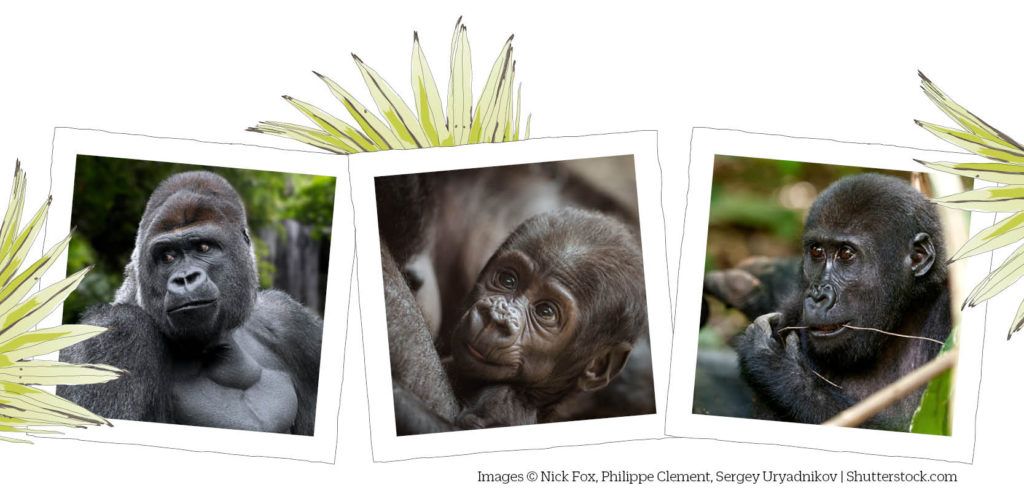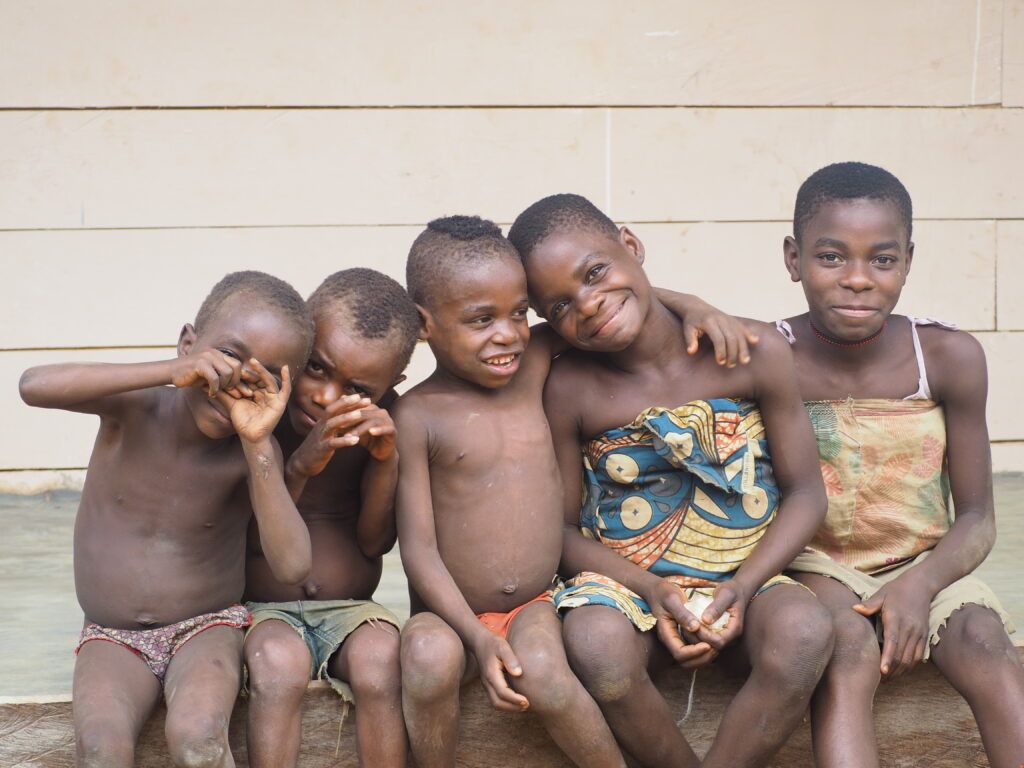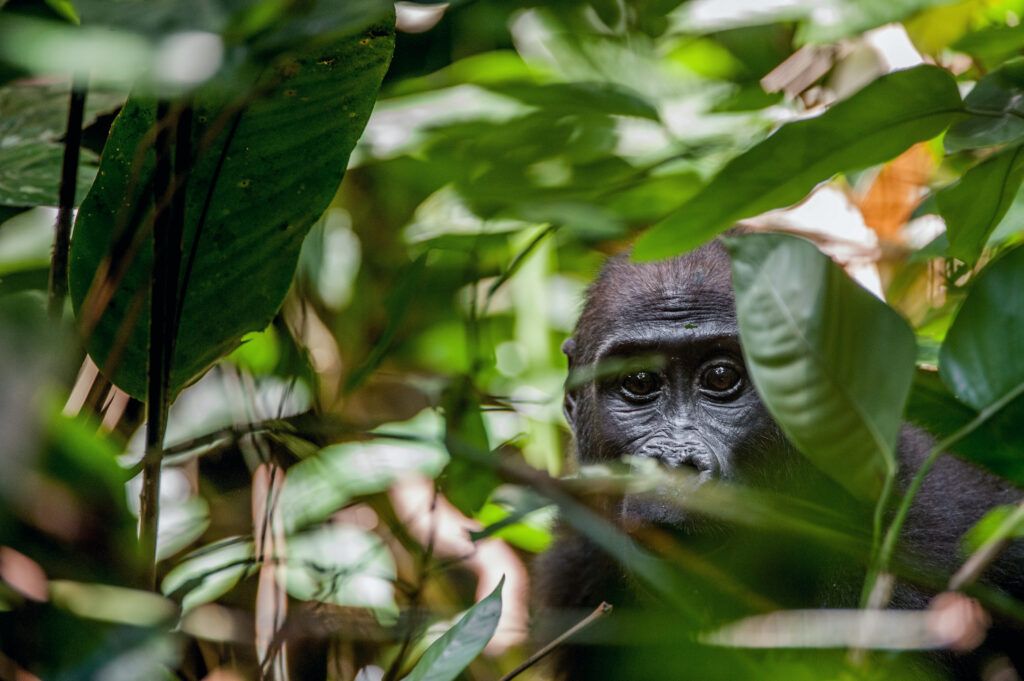Help protect gorillas
Make a donationSupport a Gorilla Guardian
Western lowland gorillas are widespread across central and west Africa, residing in dense, tropical rainforests. They live in groups of up to 30 individuals, called troops, and can weigh in at 400 pounds. Western lowland gorillas are highly intelligent, with at least 22 unique vocalisations. They are generally non-aggressive unless disturbed, or when prompted to show off their dominance to other males
Their population has declined by an estimated 60% in the last 25 years, and they are now categorised as critically endangered by the IUCN.

One of their key habitats is the Campo Ma’an forest in Cameroon, where they live alongside staggering biodiversity: 80 other mammal species, 302 bird species, 80 amphibians, 122 reptiles, and 249 species of fish. Though great swathes of this forest have been protected, it’s surrounded on nearly all sides by logging concessions and rubber and palm oil plantations. This proximity to humans poses great threats to wildlife, from farming, commercial hunting, and habitat loss. Furthermore, poorly resourced wildlife authorities mean they are unable to sufficiently protect wildlife in the face of expanding demand for bushmeat and an increase in the illegal wildlife trade. Today, gorillas and other wildlife are at great risk of being killed for their meat.
The Bagyeli people, who are indigenous to this part of Cameroon, have traditionally relied on the Campo Ma’an for their livelihoods, hunting and gathering in sustainable, non-exploitative ways. With their extensive knowledge of the forest habitat and its species, they have been known as the custodians of the forest.
However, as plantation and logging efforts cut further into the Campo Ma’an, and access to the forest itself has been cut off, the Bagyeli way of life has been devastated. The situation deteriorated even more during the Covid pandemic, when a shut down of tourism robbed them of another stream of income. Commercial hunters are taking advantage of this desperation, exploiting the Bagyeli for their hunting skills, paying them to illegally hunt and transport bushmeat. This increase in demand for bushmeat puts the gorilla population in danger. But with nowhere else to turn, the Bagyeli are forced to harm the very landscape they’ve called home for generations.
To help protect the western lowland gorillas, who are already so vulnerable, we’re supporting a pilot programme run by African Wildlife Foundation (AWF), to enable the Bagyeli’s relationship with the forest and its wildlife to return to one of guardianship. The team will recruit ten men from Bagyeli villages who are likely to be susceptible to exploitation by commercial interests, and train them to be Gorilla Guardians, giving them an alternative livelihood at a time when it is most needed.
The team will work with the guardians alongside the Cameroon government, using the Bagyelis’ expertise to protect gorillas and other wildlife and, crucially, give the Bagyeli more say over how their native habitat is governed.
Are you able to make a gift to train a Gorilla Guardian, and protect gorillas for the future?
Thank you.
Not ready to donate just yet?
You can still stay up to date on all things wildlife by signing up to our e-newsletter.
Header image credit Sergey Uryadnikov, Shutterstock



